Parisian Walkways: Rue Poncelet and its Fine Open-Air Market

Hidden away in western Paris, rue Poncelet is home to one of the capital’s best open-air markets. Jeffrey T Iverson met its merchants and sampled its delights
For many lovers of the City of Light who make the pilgrimage up the Champs-Élysées, a dilemma awaits when they’ve reached the Arc de Triomphe. Now wandering around western Paris, with its wide, traffic-jammed avenues, office buildings and affluent, yet occasionally sterile residential neighbourhoods, it sometimes seems that the charm and soul has been sucked out of these far reaches of the capital. But only a 10-minute jaunt away, and a stone’s throw from the Ternes métro station, is the most inviting hidden walkway, offering the most unexpected escape from the smog and incivility of the big city: rue Poncelet, home to one of the most beloved open-air street markets in Paris. (17th arrondissement)
The tone changes from the moment one steps off avenue des Ternes and begins walking up rue Poncelet, passing the over owing terrace of the café Le Dada (12 avenue des Ternes), which often emanates the jovial atmosphere of a village square during apéritif hour. Arriving at the corner of rue Bayen, you’ve now plunged directly into the heart of the Marché Poncelet. Fruit and vegetable stalls overflowing with the riches of the French countryside reach far out into the street, in some cases leaving barely enough room for two people to pass. Butchers sharpen their knives, greengrocers chant their prices, rotisseries turn, sea bass glisten, baguettes crunch… It’s undeniably one of the city’s most picturesque market streets. But is it all appearances? The experts say otherwise.
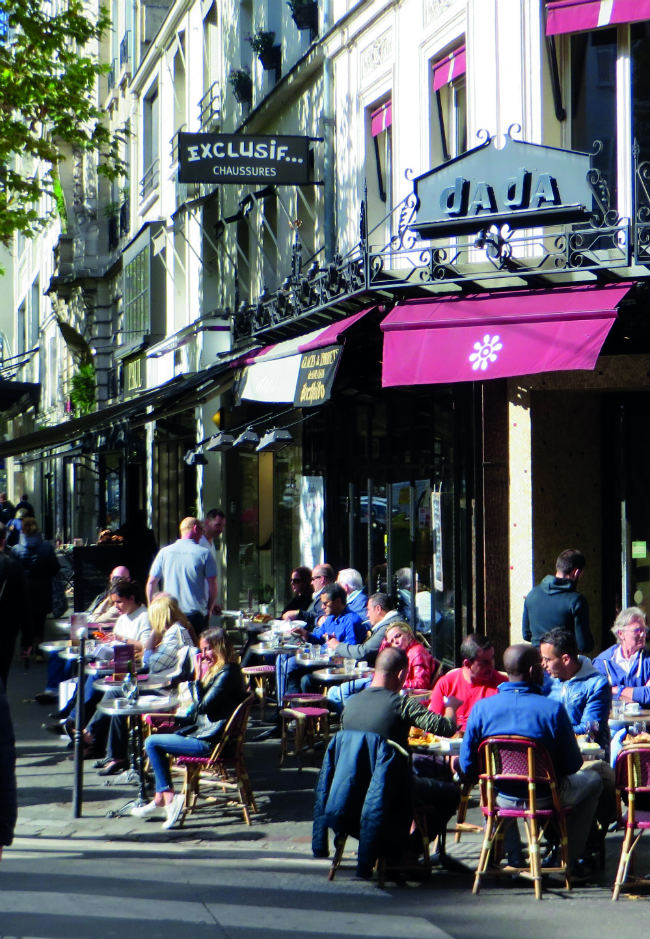
The popular cafe, La Dada. Photo: Jeffrey T Iverson
Chef Guy Savoy lived and worked in the neighbourhood for 25 years, until moving his three-star restaurant to the Left Bank in 2015. “The Marché Poncelet, for me, remains a place unique in Paris,” he recently told Le Figaro. “Everything is of the highest quality there, from fish and shellfish to the vegetables and dairy products.”
Equally nostalgic is Patricia Wells, author of The Food Lover’s Guide to Paris and former restaurant critic for L’Express and the International Herald Tribune, who says “some of the best veggies, fish, coffee and cheese in France” are to be found on rue Poncelet. “For more than twenty years this high-quality street market was my neighbourhood marché, and I still cross town now for the sparkling fresh fish and shellfish at Daguerre Marée (9 rue Daguerre), fruit and vegetables from Planète Fruits (5 rue Bayen), and state-of-the-art, attentively aged cheese from Alléosse.” With its half a dozen boulangeries and pâtisseries, as many fruit and vegetable merchants, multiple butchers, fishmongers, charcuteries and fromageries, and coffee, tea and other gourmet food shops, all open every day except Monday and Sunday afternoon, Wells considers rue Poncelet the quintessential rue commerçante.

The fish here is renowned throughout Paris. Photo: Jeffrey T Iverson
But it wasn’t always so… Before it was renamed in 1868 for the military figure and mathematician Jean-Victor Poncelet, rue Poncelet was known as rue des Dames. Dating back to the Middle Ages, this was once a holy path leading to the Abbey of Montmartre. Rue Poncelet is no longer hallowed ground, and yet, save a few bad apples, it’s a place where people still seem to hold credence in the kind of small-town values that can be rare in big cities; a place where people work incredibly hard, yet can still be incredibly attentive to their clientele, where prices are gauges of quality, and merchants are more focused on gaining your loyalty than fleecing your pocket.
Philippe Divay is the third generation in a line of famous charcutiers selling homemade sausages, pâtés and meats on iconic merchant streets, his father having had his shop on rue du Faubourg-Saint-Denis, and his grandfather his on rue Mouffetard. Since Philippe opened Maison Divay in the Marché Poncelet in 1986, he’s made the Divay name synonymous with the finest, but also most reasonably priced, foie gras in Paris.
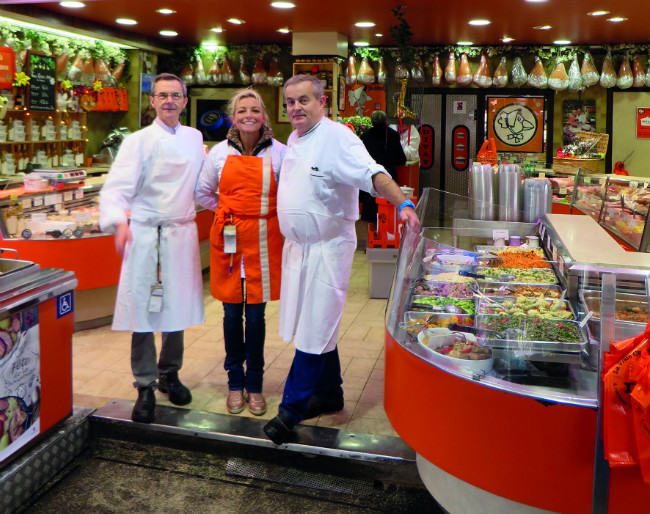
Maison Divay. Photo: Jeffrey T Iverson
“It’s very good for your health!” he reminds us. “All those people in southwest France with their duck magret, goose confit and foie gras, they don’t have cholesterol problems!” A visit to Maison Divay is always a genial experience, especially when Philippe’s twin brother Jean-Pierre is at the cash register and Philippe is manning the rotisserie table, and the two start cheekily quarrelling back and forth in a kind of Laurel and Hardy routine. “Hey, why are you yelling at me? I’m very sensitive you know!”
Such good humour from people who started work at 3.30am is remarkable, but that tireless devotion is all part of a recipe that fuels the success of all the best addresses of Marché Poncelet. “The reason the market remains healthy is that we’re all true professionals, which first of all means we are constantly in our shops – that’s key,” says Philippe. “Then, as long as you have excellent products, you keep your prices reasonable, and you welcome people with kindness, you have a recipe that could work anywhere.”
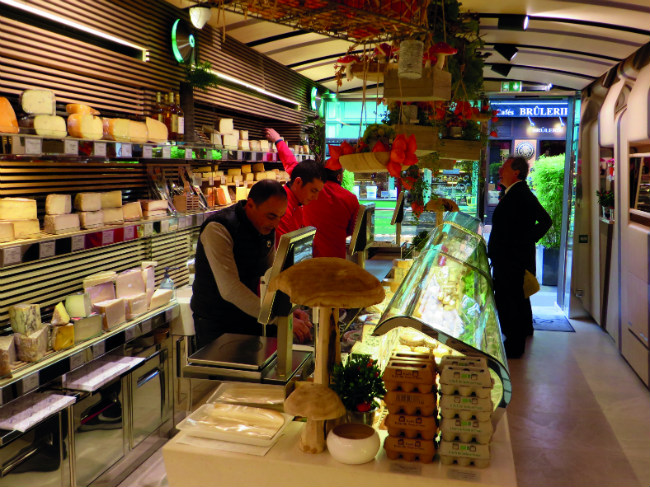
Fromagerie Alléosse. Photo: Jeffrey T Iverson
Throughout the market, and up and down rue Poncelet, you see merchants embracing such an approach in their boutiques and stalls. You see it at Planète Fruits in the way a greengrocer shares friendly gossip with a customer while he meticulously arranges a mouth-watering display of fresh-picked ceps, black trumpet and girolle mushrooms, or when another invites an elderly shopper to sit down for a rest on some boxes, and playfully pops a sample of a new fruit they just received into her mouth.
You even see the chic new arrivals adapting their businesses for Poncelet. Take La Pâtisserie des Rêves, one of three high-end pastry shops, with La Pâtisserie Cyril Lignac (9 rue Bayen) and Les Belles Envies (17 rue Poncelet), to open around the market in the last five years. Though the brand is primarily dedicated to classic French desserts – which in a more tourist-filled neighbourhood would sell all day – the rue Poncelet shop has developed a whole clientele that only comes in the morning for a viennoiserie and café.
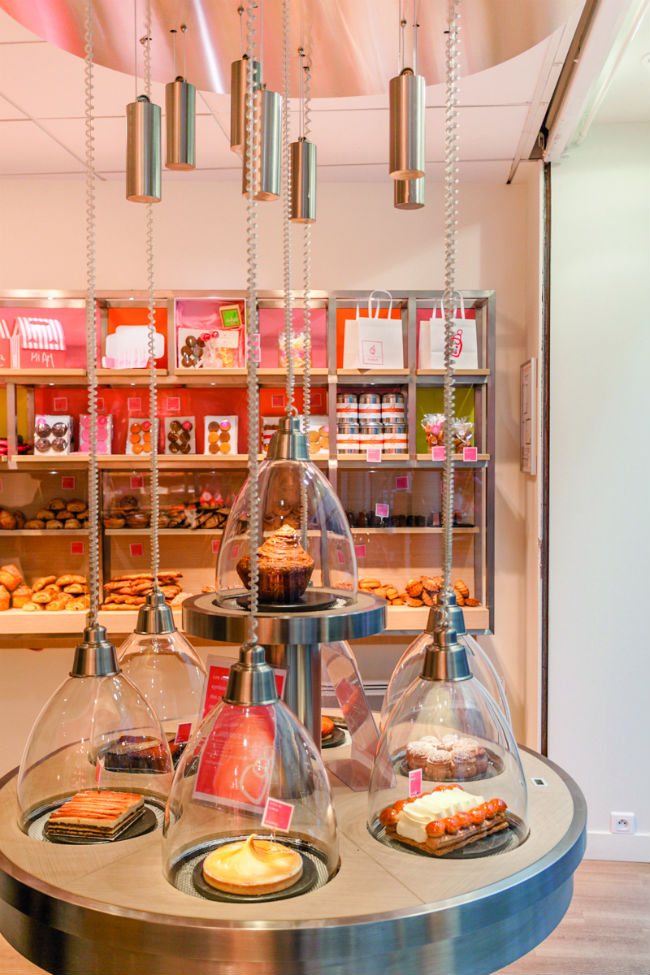
La Pâtisserie des Rêves
Now, after their Paris-Brest pastry a few years ago, this year Pâtisserie des Rêves’ brioche was awarded best in Paris by Le Figaro. “There are really very few tourists in fact, so we need to build customer loyalty among the locals,” says the boutique’s manager Charlotte Naudin. “Which means you have to have high-quality products that evolve with the seasons, and a warm welcome – something that matters more than some might think!”
For Paul Coiffard, who manages Les Grandes Caves with owner Jérôme Huard, this relative isolation from the rest of Paris is part of the street’s appeal. “Jérôme opened this wine shop on rue Poncelet to be at the heart of a very old Parisian market,” he says. “Today we try to take part in this little village ambience, and to welcome people as they should be welcomed.”
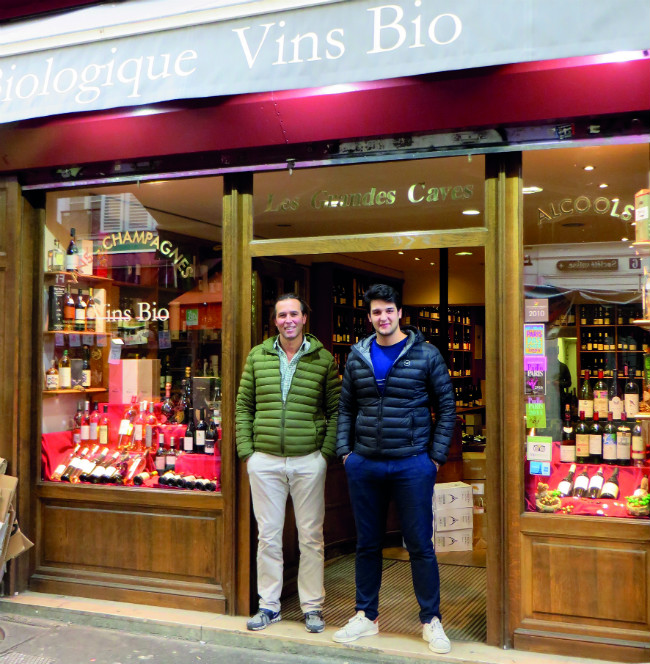
Les Grandes Caves. Photo: Jeffrey T Iverson
That means always having a bottle of something new open for their clients to taste when they stop in. “We have a real relationship with the inhabitants of rue Poncelet and the quartier des Ternes; they put a lot of trust in us. Our mentality at Les Grandes Caves is to work with small-scale winemakers, and to introduce them to curious wine lovers.” Paul and Jérôme don’t hide their preference for Burgundy.
“So often people will ruin themselves buying Burgundy appellations like Gevrey-Chambertin or Chambolle-Musigny, when there are also village wines from Givry, Maranges, Marsannay, little appellations which are not so well known, where you can still get great pleasure for your money.” Not that Les Grandes Caves doesn’t have grands vins as well, from priceless bottles of Romanée Conti to the Hermitages of Jean-Louis Chave.
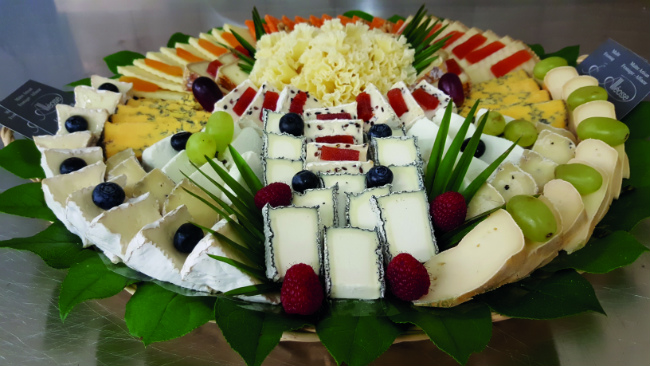
Photo: Alléosse
Having patrons who can afford such pleasures has obvious benefits. “We have a diverse clientele here, who work in every domain – politicians, actors, lawyers, doctors, business leaders,” says Philippe Alléosse of the eponymous cheese shop.
“In general, they are well-travelled, and used to eating rare pleasures.” Such a client once stepped into the shop to inform Philippe that he’d just become owner of the legendary Sauternes wine estate Château de Rayne Vigneau.
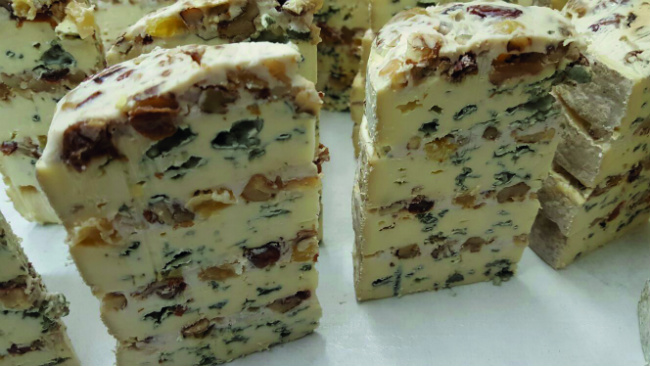
Photo: Alléosse
“He asked me if I’d like to start using his first-growth wine to make my Sauternes-aged Fourme d’Ambert.” Today, that cheese is exported around the world. It’s just one of many ways Alléosse’s superb location in the heart of the Marché Poncelet has been a springboard in the career of this internationally-renowned maître artisan fromager-affineur, or master cheese-ager.
At a time when most cheese producers, for lack of space or fear of losing their product, don’t age their cheese to optimum maturity, Philippe Alléosse is among the very rare cheese merchants who don’t simply buy their cheese wholesale and pop it in the window. “When you’re an affineur, you come to understand the entire life of a cheese; it’s an entirely different approach,” he says. “It’s you who guides the cheese along, and allows it to reach its aromatic best.”
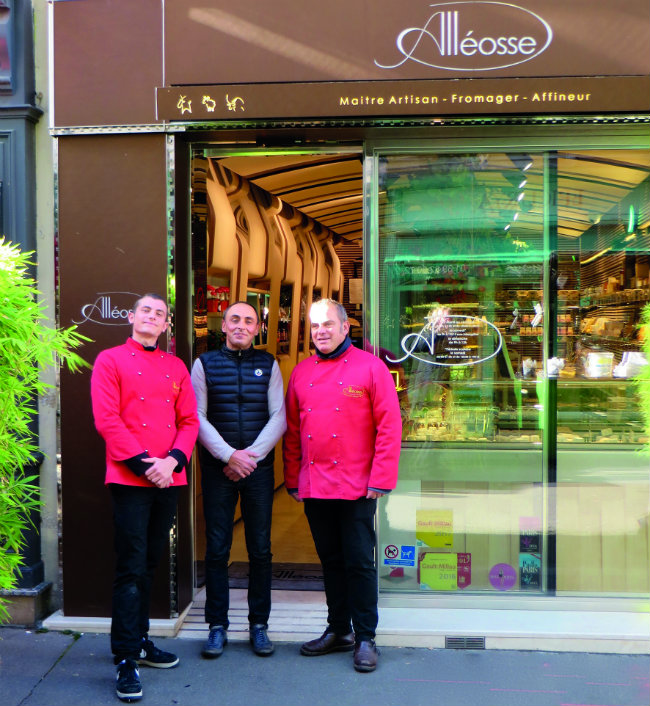
The Alléosse cheese shop. Photo: Jeffrey T Iverson
Alongside his father, Roger, who founded the family cheese shop, in the 1980s Philippe created 300 square metres of temperature and humidity-controlled cellars not far from rue Poncelet, still in the 17th district, where tons of Reblochon, Camembert, Comté, but also Corsican Brin d’Amour, Pyrénées Bethmale, or Haut-Jura Bleu de Gex cheeses, are given the time and care to develop their optimum flavours before being released to the public.
Alléosse has since travelled the world to lecture about affinage, helping set up cellars in the United States and Canada, and taking the true taste of French cheese as far as Japan and Singapore. His work represents a rejection of the industrial standardising of cheese, which, he says, squeezes artisan cheese producers and threatens to deny consumers the chance to discover the riches and complexity of France’s ancestral cheese culture. “We’re working to let future generations and people around the world understand what treasures these cheeses represent.”
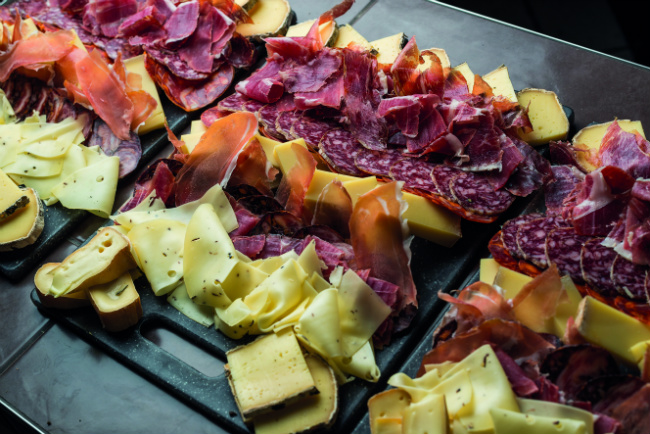
Seguin Gourmet. Photo: Kevin Rauzy
Back at rue Poncelet, to see Alléosse patiently and passionately explaining the wonders of Roquefort to a client, it’s easy to believe him when he says his ultimate goal is donner du plaisir aux autres – to give pleasure to others.
When you taste his Sauternes-aged Fourme d’Ambert, his silky smooth, impeccably aged chèvre, or his 66-month Parmesan, you might well agree with Patricia Wells that, “If God is in the details then he is there in the Alléosse cellars.” What’s certain is that rue Poncelet offers an escape from the city, and a chance to not only taste cheese as if for the first time, but to rediscover the charms of Paris.
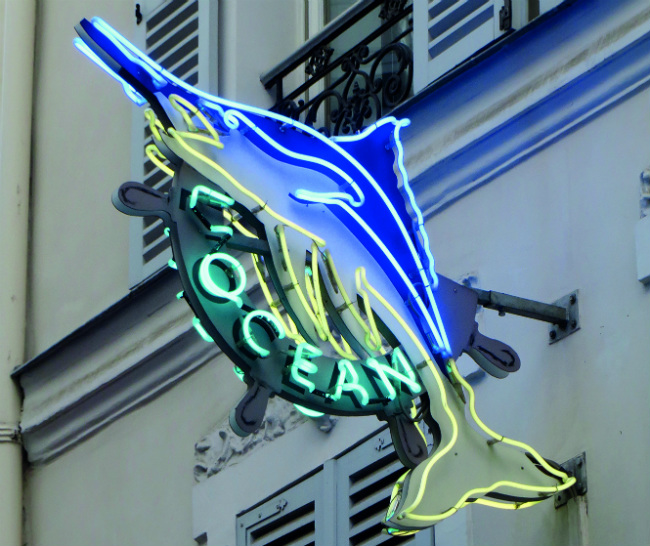
Photo: Jeffrey T Iverson
BOUTIQUES
Maison Divay: 4 rue Bayen, Tel. +33 (0)1 43 80 16 97
Drawing a faithful clientele of French gourmets and celebrities alike, Maison Divay celebrates France’s gastronomic terroir in all its diversity, from the rustic to the refined, with a vast array of charcuterie and home-made dishes. Their Alsatian choucroute, sausages and boudin blanc are as famous as their smoked salmon, caviar, and their goose foie gras of unrivalled price and quality.
Les Grandes Caves, 9 rue Poncelet, Tel. +33 (0)1 43 80 40 37
Unlike the big wine chains, Les Grandes Caves has only four shops in Paris, which means they can work with the small-scale artisan winemakers you rarely find in Paris – Burgundy village wines of overlooked quality and value, but also ultra-rare cult wines like Romanée-Conti, Domaine Dagueneau or Château Rayas in Châteauneuf-du- Pape, or Chave Hermitage.
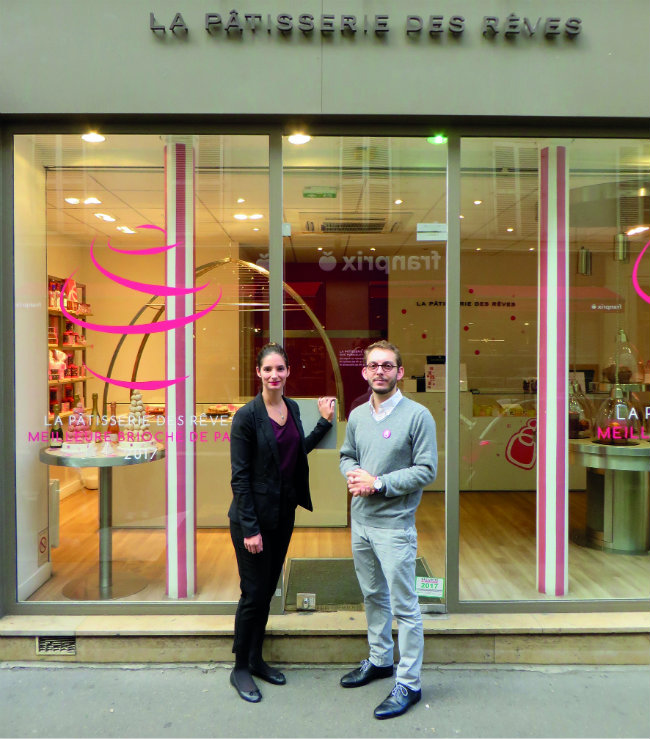
La Pâtisserie des Rêves. Photo: Jeffrey T Iverson
Alléosse, 13 rue Poncelet, Tel. +33 (0)1 46 22 50 45
Most French cheese is sold in supermarkets; even many small shops sell cheese from the wholesale market. Only a few artisans go to the next level, ageing their cheeses to perfection in their own cellars. Philippe Alléosse is their pope. Tasting his Reblochon, truffled Mont d’Or, chèvres, or Sauternes-aged Fourme d’Ambert, is to taste cheese again for the first time.
La Pâtisserie des Rêves, 19 rue Poncelet, Tel. +33 (0)1 42 67 71 79
In an era when French pastry is in creative upheaval, the Pâtisserie of Dreams was created by Thierry Teissier and pastry chef Philippe Conticini to reinvigorate the great classics of pâtisserie française. Several pleasantly ethereal boutiques later, and now owned by chocolatier Daniel Mercier, the concept is a success, awarded Best Paris-Brest, and now Best Brioche, in Paris.
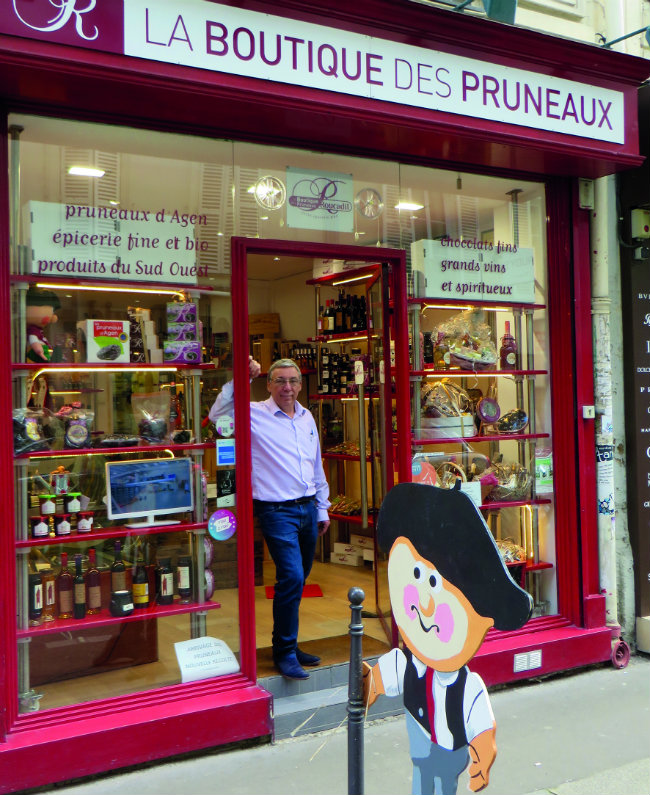
La Boutique des Pruneaux. Photo: Jeffrey T Iverson
La Boutique des Pruneaux, 30 rue Poncelet, Tel. +33 (0)1 53 81 91 39
This blissfully aromatic shop, created in 2016 by Maison Roucadil, producers of France’s famous Agen prune, is actually a gourmet grocer dedicated not just to this delicious superfood, but to the many delights of southwest France – walnut oil, cassoulet, foie gras, old vintage Madiran wine and Armagnac, and yes, La Vieille Prune plum eau-de-vie.
Seguin Gourmet, 48 rue Poncelet, Tel. +33 (0)6 50 29 24 22
In 2014, Tristan Seguin, vendor of fine charcuterie to upscale Parisian restaurants, decided to open a shop on rue Poncelet to sell his exquisite jambon straight to the public. Stop by his cosy bodega for a gourmet picnic of truffled gouda, Maison Marc pickles, Pyrénées saucisson and delectable aged ham from France or Spain, washed down with a Parisian Bière de Paname beer.
From France Today magazine
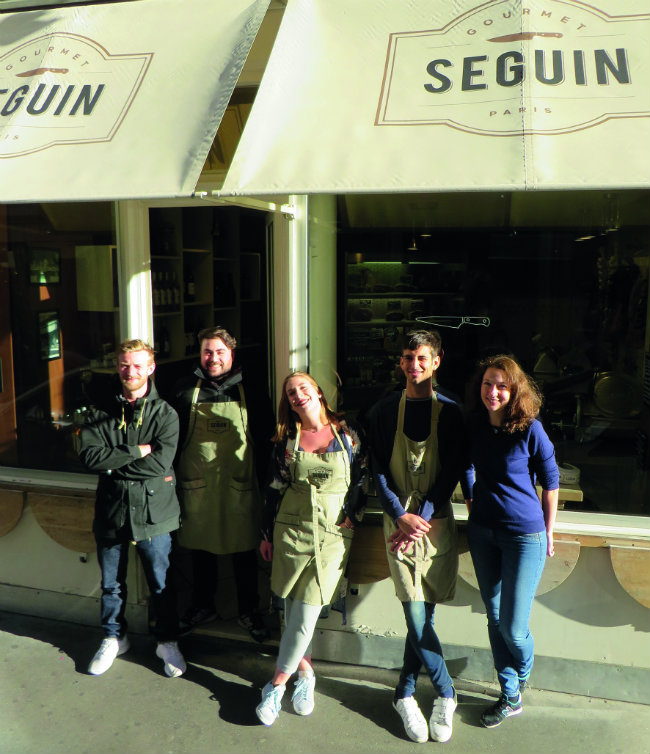
Seguin Gourmet. Photo: Jeffrey T Iverson
Share to: Facebook Twitter LinkedIn Email
Leave a reply
Your email address will not be published. Required fields are marked *

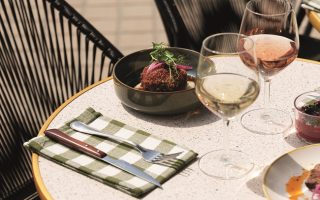

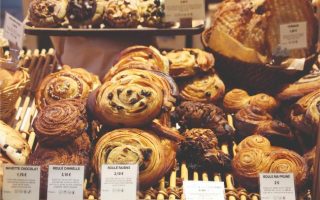
REPLY